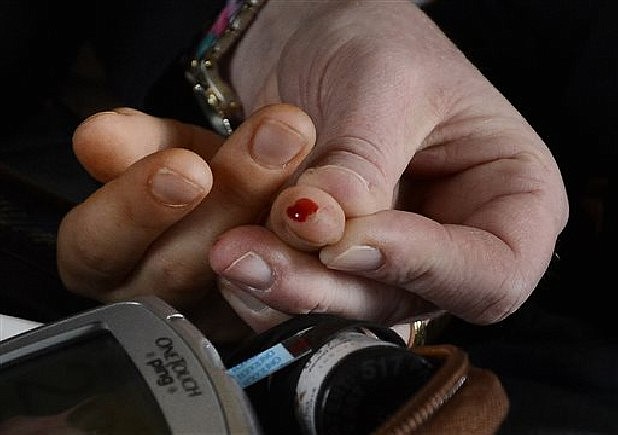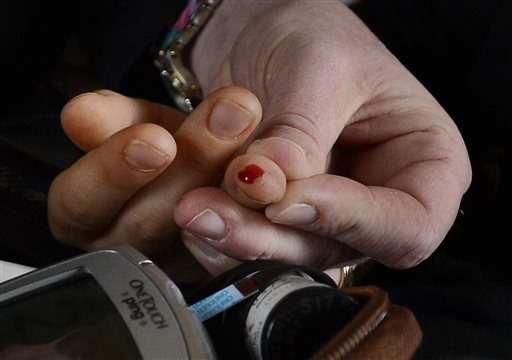NASHVILLE - Missy Gaw's 10-year-old daughter has to have a dose of insulin each time she eats. If no nurse is available to administer the dosage at the girl's Nashville elementary school, then Gaw or her husband drive there to do so.
Gaw's husband is self-employed, and she works from home, so they have accommodating schedules. But many other parents whose children depend on insulin aren't so fortunate.
"I personally don't feel much of a hardship, but ... there are a lot of other parents who don't have as flexible jobs as my husband and I do," Gaw said.
That's one of the main reasons 23 states and the District of Columbia have passed laws that add insulin to medications school staff may volunteer to be trained to administer, according to the American Diabetes Association. The Alexandria, Va.-based organization has gradually recruited states since it began pushing the legislation about 1999.
The Tennessee House overwhelmingly approved the legislation 76-11 on Thursday, a few days after the Senate unanimously approved it. The measure now goes to the governor, who is likely to sign it into law. Kentucky made comparable legislation a law this month, and Alabama, New York, Ohio and Pennsylvania are considering similar bills.
Even if a child is able to self-administer the insulin dosage, supporters of the Tennessee proposal say, a nurse or specially trained individual should be available to assist if necessary.
"The legislation is needed so that students with diabetes can get their insulin whenever needed regardless of whether or not a school nurse is on campus," said Crystal Jackson, director of an ADA program called Safe at School, which was formed to address barriers to diabetes care. She said the age varies for children who self-administer insulin.
"You might have a really young child, say like 8 years old, who can do their own insulin," Jackson said. "But you might have a 15-year-old (who), for whatever reason, can't or won't."
About 215,000 people younger than 20 are living with diabetes in the United States, according to the latest figures from the Centers for Disease Control and Prevention. That marks an increase since 2000, when the figure was roughly 151,000.
In Tennessee, and other states, not every school has a nurse, mainly because of tight budgets. And even at schools with a nurse, the bill's proponents say, that person may have to travel to schools without nurses in the area.
"So it would be helpful, possibly, for the nurses," Gaw said.
In an awkward intersection of the nation's childhood obesity crisis and the budget cuts that have left most schools without a full-time nurse, one notable group objects to the measure: the nurses.
The Tennessee Association of School Nurses argues instead for bolstering its dwindling ranks and warns that something as routine as giving an insulin dose can require a medical background if the unexpected happens.
Things like adjusting the amount of insulin a child needs based on the amount of carbohydrates he or she may have in a meal require the experience of a nurse, said Lisa Nistler, president of the nurses association.
"Nurses have the knowledge ... to manage all the idiosyncrasies that go along with administration," Nistler said. "She understands the child and what their trends are like, and sometimes calculations need to be managed if the child is exhibiting a trend that would require an adjustment of the dose."
Tennessee House Democratic Leader Craig Fitzhugh of Ripley said before Thursday's vote that the legislation sheds light on the need for more nurses in schools.
"If we had school nurses in every school, this wouldn't have to happen," he said of the proposal.
Nurses in Tennessee schools provide training to those who volunteer to administer glucagon, an emergency treatment for severely low blood sugar, so there would be no additional costs for the insulin training, according to a fiscal analysis of the legislation.
"If they aren't comfortable with doing the training themselves, then they can bring in a diabetes educator or other clinician from their local community," said Kristie Ryan, executive director of the American Diabetes Association in Tennessee.
Under the Tennessee proposal, school boards would have to approve the legislation, and parents would be able to opt in. State Board of Education Executive Director Gary Nixon said as long as the volunteers are trained adequately, the agency favors "anything we can do to make sure the children get the medications that they need."
Parent Heidi Elbarky agreed.
"I do not think that person will be as experienced as a nurse, but I'm comfortable with the permissive language of the legislation because I have to agree to the person," said Elbarky, whose 8-year-old son attends an elementary school in Spring Hill, Tenn., and needs insulin daily.
"As long as they're trained, then I am comfortable."
State Sen. Steven Dickerson is sponsoring the legislation in Tennessee, which enacted a law last year to make it easier for schools to stock the life-saving drug epinephrine used to counter allergic reactions.
He said baby sitters and other volunteers in the community routinely take care of diabetic children, and he believes the same should apply in schools.
"I see this as a supplement to school nurses, not a replacement," said Dickerson, R-Nashville. "Obviously, medical professionals have more training and would be preferable, but they're not available all the time."

